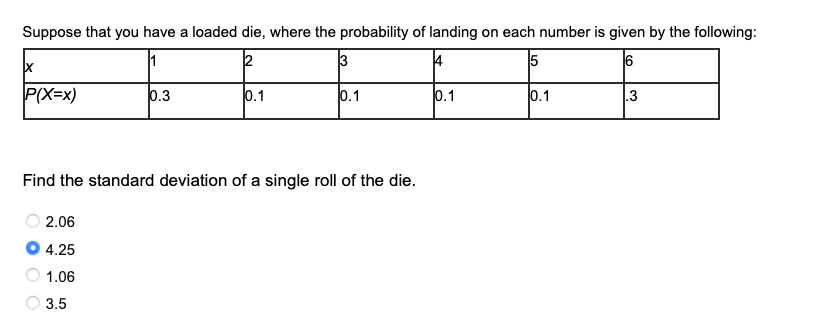Answered step by step
Verified Expert Solution
Question
1 Approved Answer
Suppose that all of the outcomes of a random variable are {a, b, c, d, e } , and that P(a)=P(b)=P(c)=P(d)= 1/4, (that is, all










Step by Step Solution
There are 3 Steps involved in it
Step: 1

Get Instant Access to Expert-Tailored Solutions
See step-by-step solutions with expert insights and AI powered tools for academic success
Step: 2

Step: 3

Ace Your Homework with AI
Get the answers you need in no time with our AI-driven, step-by-step assistance
Get Started


